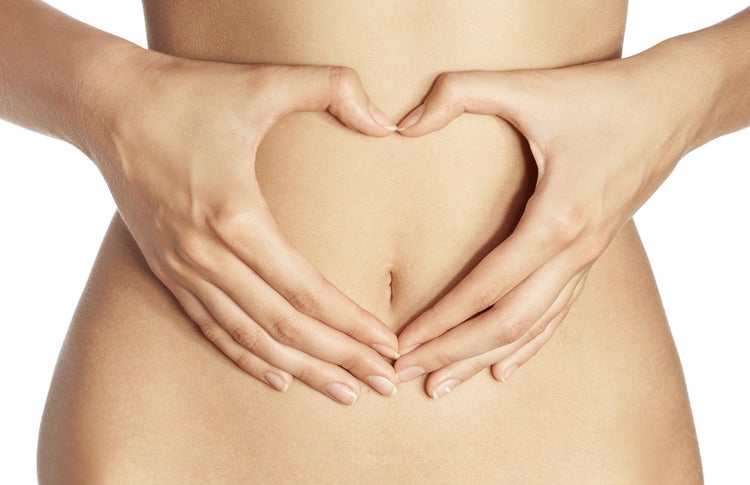Improve Your Diet, Improve Your Mood

You are what you eat has never rung more true. The idea of the microbiome — a fancy name for our gut and the bacteria that reside in it — and how it contributes to our general health and our brain health is what excites neurologist David Perlmutter, MD. In fact, this relationship is what his latest bestseller “Brain Maker” is all about.
24Life talked to Dr. Perlmutter about his new book, the gut-brain-mood connection, and how to get a good, healthy gut.
24Life: You had such great success with “Grain Brain,” what made you decide to write this book about the gut and its power on the brain?
David Perlmutter (DP): My mission is to really stay on top of nutritional science and health. The ideas of the microbiome and the role of the gut bacterium in general health, and specifically brain health, is very cutting-edge. Ninety percent of all the peer-reviewed publications dealing with the microbiome have only come out in the last five years.
We are just beginning to understand what makes a good brain go bad and that is inflammation. In addition, we are just beginning to understand the incredible role of gut bacteria in mediating inflammation and determining inflammation levels in the body. What an incredible time for me as a brain specialist to realize the gut is playing such an important role, moment to moment, in determining how the brain is functioning — as well as the long term risk of disease.
24Life: Our gut is sometimes called our second brain. Why is that? And does it function differently than the one in our head?
DP: We begin to understand that the brain and the gut are derived from the same tissue early in our embryology, but I think more importantly, the gut is rich with nerves that we call the eccentric nervous system, as contrasted to the central nervous system. The gut is hugely populated by nerve and nerve types, and there’s this intimate moment-to-moment connection through that nervous system with the brain. Many things that are manufactured in the gut affect how the brain works; therefore, how you are able to process information and even how you feel is strongly dictated by chemicals made by the gut. When we talk about the happy chemical serotonin that people want to have more of, understand that 90 percent of that is made in the gut, not the brain.
The gut helps release the amino acid tryptophan that we need to create serotonin. The gut helps in this whole process of converting the tryptophan into serotonin. But when there is inflammation, like with food allergies and sensitivities and those kind of issues, then less tryptophan is available to make into serotonin. And this creates a very interesting relationship between inflammation and depression. Why do we see people with inflammatory bowel issues like Crohn’s disease or inflammatory colitis are far more frequently suffering from depression? It is because the actual process of inflammation is restricting the amount of tryptophan used to make serotonin.
24Life: Basically if we have enough inflammation or bad bugs in our gut, that’s what really halts our brain’s ability to be healthy?
DP: You hit the nail on the head. I don’t really want to say good bugs and bad bugs. What we clearly understand is that as the diversity of the bacteria — the number of different species — or the ratio of certain bacterial groups change, we set the stage for inflammation.
24Life: What are some of the steps someone can take to develop a healthy bacterial profile in the gut?
DP: I think step one is to recognize what makes the good gut bacteria go bad. There are so many things in Western culture that are involved: everything from being born by Caesarean section, to eating a diet that is high in sugar and carbohydrates and lower in fiber, and even overexposure to antibiotics. These things have a profound effect on changing the gut bacteria and making it less healthy and making it more difficult for us to rebuild that healthy population.
Some of the steps that I discuss in “Brain Maker” to build a healthy gut include:
- Cut the carbs, especially the simple sugars.
- Welcome fat back to the table. That is so fundamental. It is getting us back to the way that humans have always eaten.
- Eat fermented foods, such as kimchee, kombucha, other fermented vegetables like sauerkraut, fermented pickles and forms of yogurt — these are all great sources of probiotics — throughout the day at every meal.
- Focus on the prebiotic foods. Food like jicama, the Jerusalem artichoke, garlic, dandelion greens, leeks, onions, asparagus and radicchio are all foods that are high in a specific kind of prebiotic fiber called inulin.
24Life: The last question we have for you is about the recommendation for fasting. Why should we do it?
DP: It’s terrific. Yes, it is a little bit of a stress for the body, but doing so activates some very, very important gene pathways that actually code for increased antioxidant production and decreased inflammation in the body. Fasting also turns on what are called the longevity genes. Fasting is really a powerful way to activate our genetic material. What a notion! We have control over the expression of our genes, and our food is definitely one way we can do that but fasting is very, very powerful way of doing that.